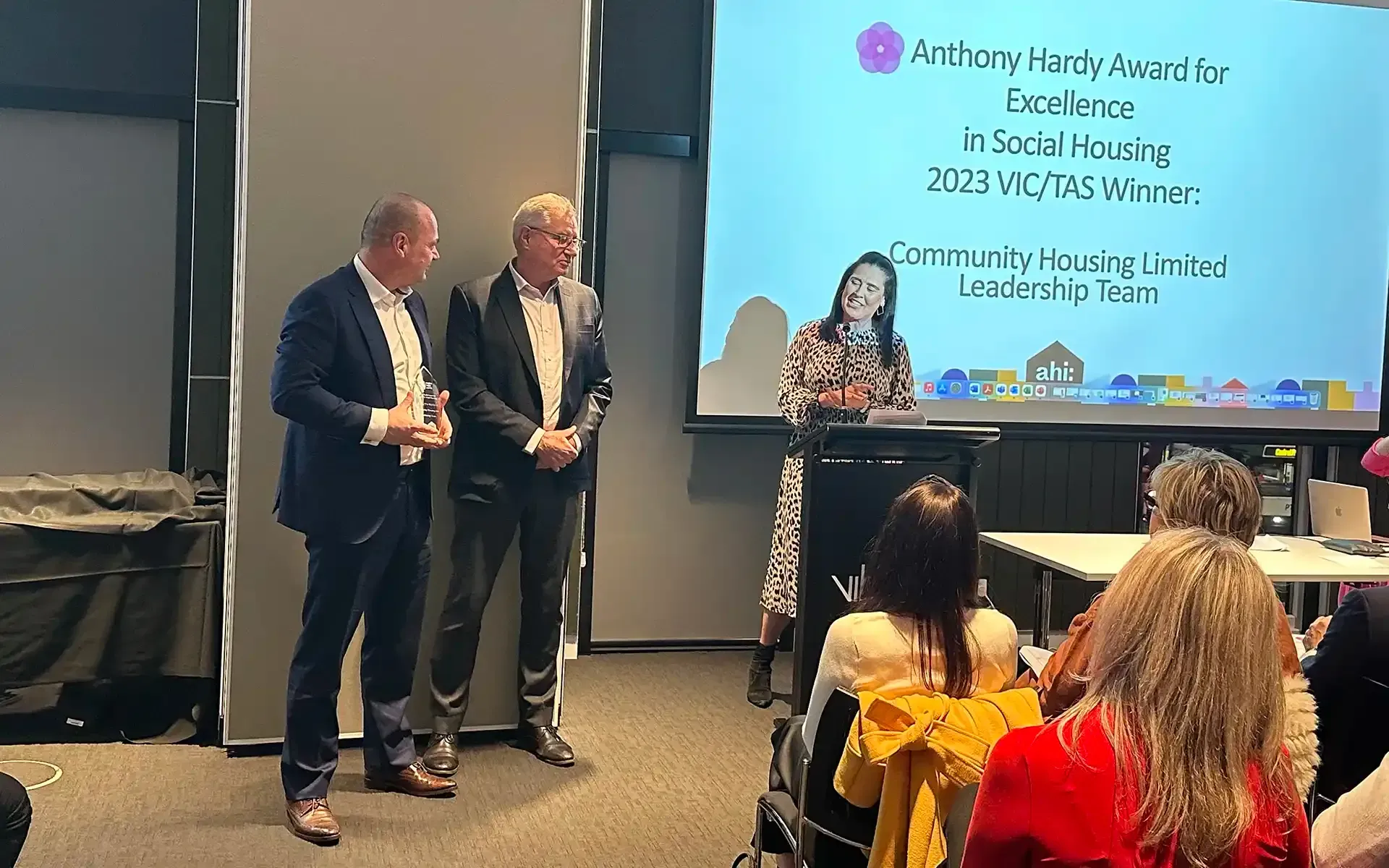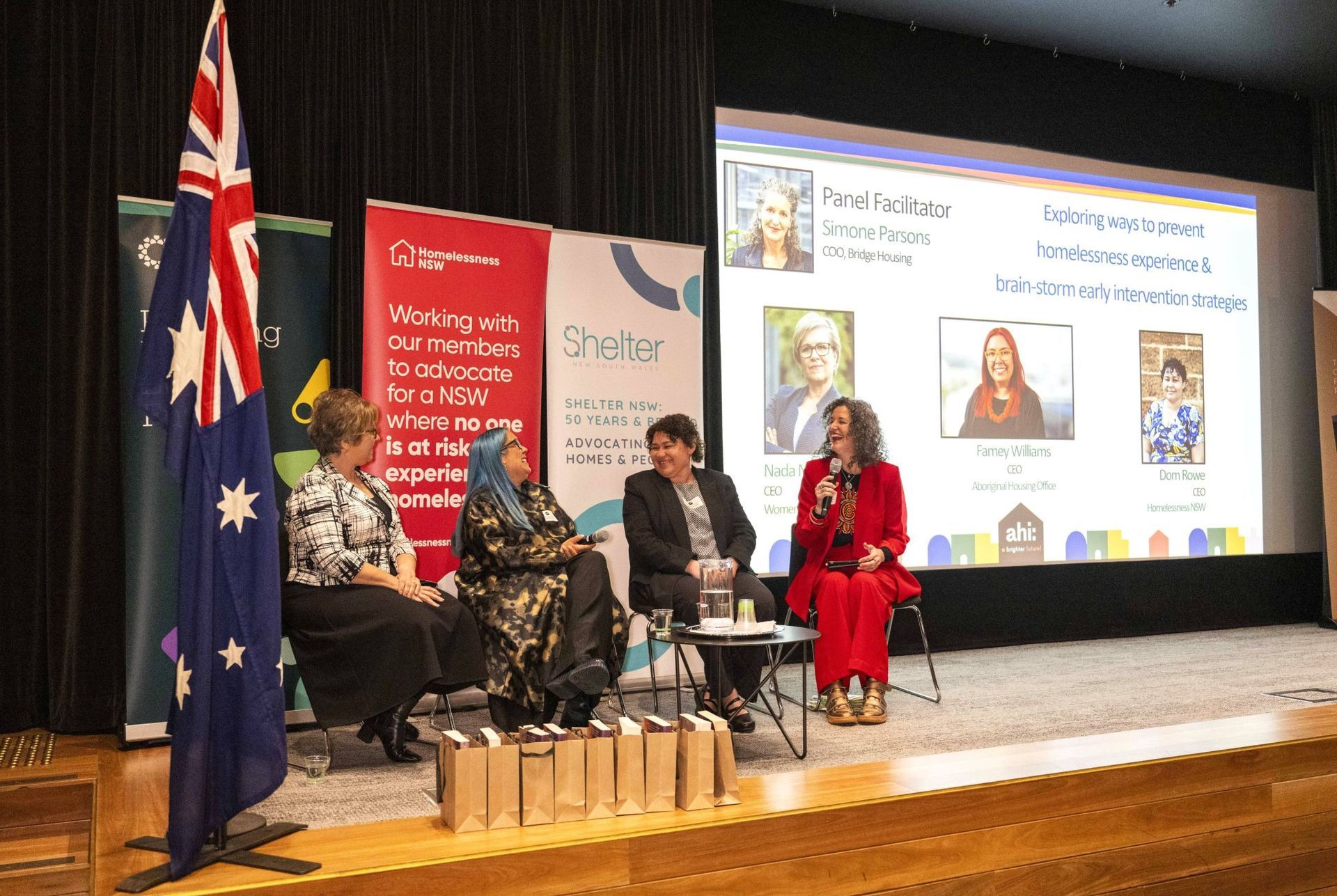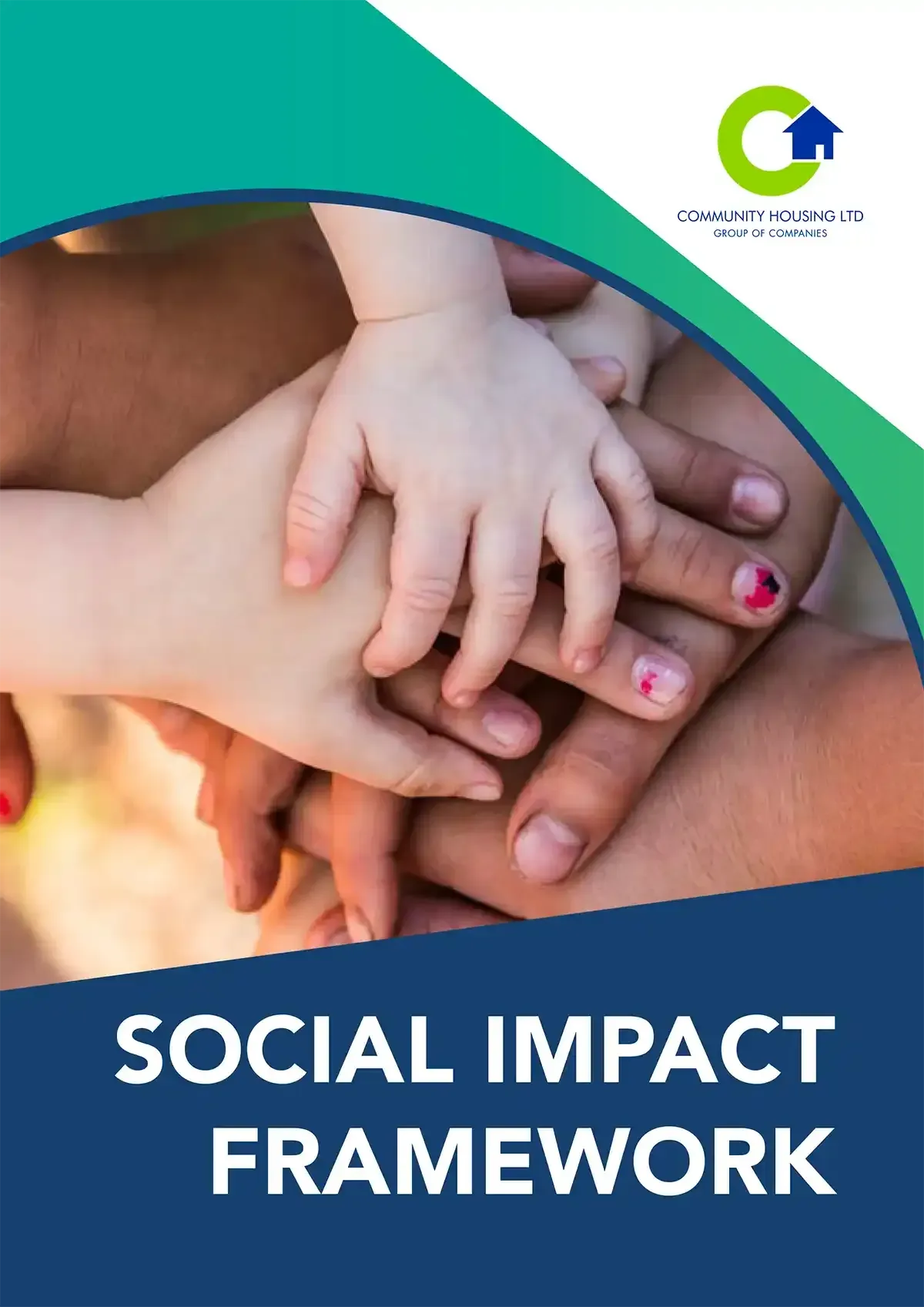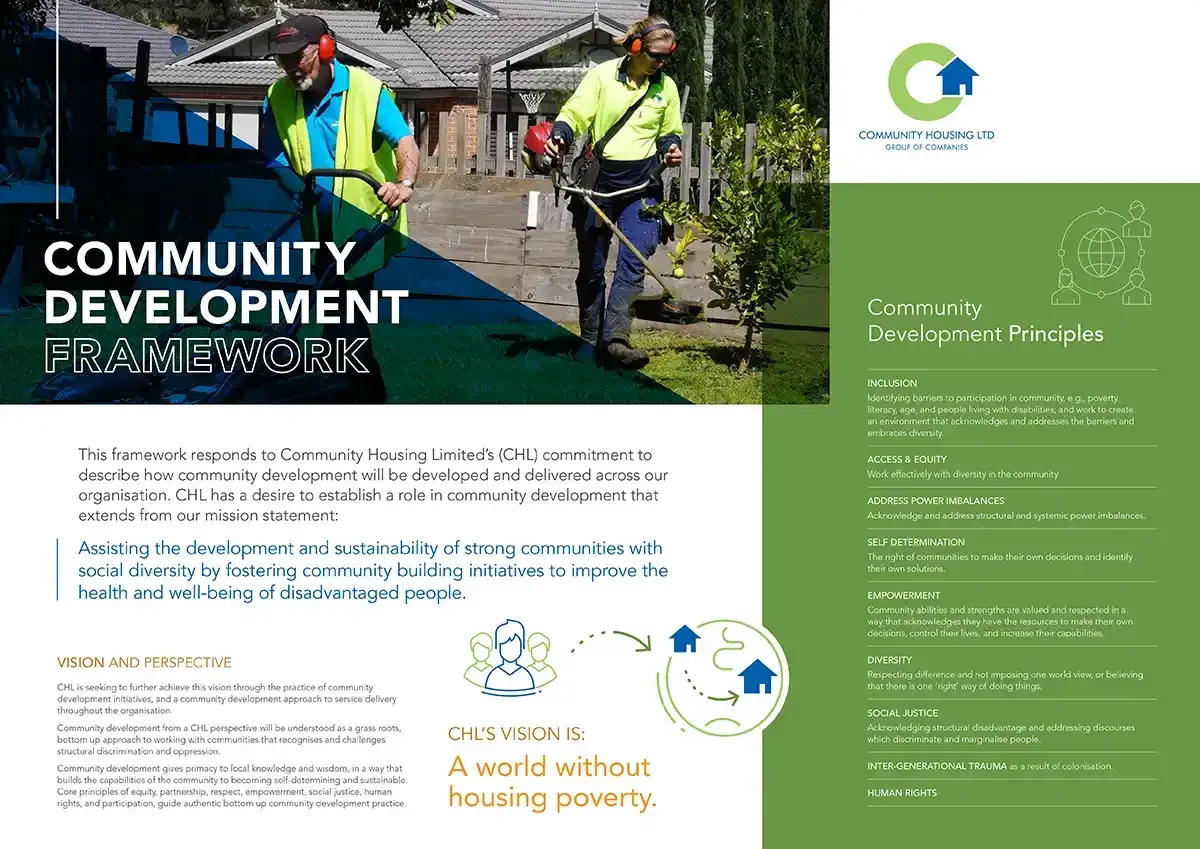Grant McNeill from Community Housing Ltd (CHL) explains how genuine excellence resonates long after the fact.
Back in 2023, the judges of our Brighter Future Awards recognised Community Housing Ltd (CHL) for many things, but it was their role in the Victorian Government’s Big Housing Build—which includes a AUD$6.3 billion investment to build 10,000 new community, social and affordable housing homes—that won them the ahi VIC/TAS Brighter Future Award for Excellence in Social Housing.
While 2023 may seem an eternity ago, developments of such a scale have a long tail; in this case, the anticipated end-date of the build is 2051.
Partnering with the Victorian Government, CHL has helped deliver more efficient, accessible and modern homes for young people, people with mental illness, victim survivors of family violence, and Aboriginal and Torres Strait Islander people through a Ground Lease Model (GLM) framework. This framework is the first of its kind.
Under the new model, CHL—alongside Homes Victoria and Tetris Capital—has delivered almost 1,100 homes across Brighton, Flemington and Prahran in Melbourne. With construction completed across the majority of the GLM sites, Grant McNeill, Victorian State Manager of CHL, says they are excited to see the homes and their extended communities coming to life.

“Each development is quite unique and there are many different tenant profiles," he says. "So, different friendships and different communities will form, and people will have their broader support networks in different areas."
Grant was particularly impressed by the architects’ ability to blend the new designs seamlessly into the existing community landscape. Using the Prahan site as an example, he highlights the level of thought that goes into shaping these developments.
"It's got amazing gardens—their plant selection and their cultivation are extraordinary," he pinpoints. "It looks so well established—it looks like it's always been there—and it's relatively discreet with these throughways so you can walk from one street to the other pretty easily. The architects call it 'porous', which means there are no barriers to the public housing or the social housing. It's more integrated into the neighbourhood.”
CHL's other work in the community and affordable housing space further supported the judge's decision to honour them with the Anthony Harding Award. CHL’s Social Impact Framework, initiated in 2018, has been a major influence on delivering meaningful services to their customers, as well as providing a model for other community housing providers to follow.
In the period for the awards, CHL noted an increase in tenant participation from their Social Impact Framework, with feedback form lodgement rising from 709 to 805. Furthermore, described as the “core to the CHL difference”, their Tenant Satisfaction Survey for the award period received more than 3,500 responses.
The survey results revealed 80% of their tenants reported overall satisfaction with CHL housing services, with 5% above the National Regulation System for Community Housing (NRSCH) target.
CHL has made significant strides concerning diversity, equity and inclusion too. During the award period, they embarked on a reconciliation journey through their Reconciliation Action Plan (RAP), which was developed following extensive consultation with staff and CHL's Aboriginal stakeholders and tenants. CHL’s RAP has shaped the way housing solutions are delivered for Aboriginal and Torres Strait Islander peoples to ensure their needs are properly recognised.
Over 67% of CHL’s workforce are female, with 57% of management positions held by women and 50% per cent of positions on the board. They also implemented a culture project within the organisation, which is employee-led, so all CHL employees are empowered to influence the workplace culture with refreshed values and unwritten ground rules. This initiative has seen employee engagement and morale go up substantially.
Recalling these achievements has been bittersweet for Grant, given the untimely passing of the organisation's founder and driving force, Steve Bevington, in May 2024.
“Steve had nominated a time that he was getting out of the organisation, and there was this whole transition going on," Grant recalls. "He basically had a program set up for that last six weeks with us, where he was going around each state and saying goodbye. We had a farewell on the Thursday and then, on that Sunday, he passed away. He was six weeks short of retirement after doing all that work over 40, 50 years."
But on a lighter note, Grant adds with a laugh, "You can imagine if he was retired and he had more spare time. He would have been stalking the halls, throwing around ideas.”
It's clear Steve Bevington has left his unrelenting pursuit of excellence in the DNA of CHL, and that his influence will continue to impact the organisation for years to come.
In wrapping up our interview, Grant feels, of all the wins CHL has recorded across their three-decade history, being recognised by their peers is what has mattered most.
“The private sector probably doesn’t quite understand the complexities of partnerships with government," he adds, "and all the challenges that you can get with social housing tenants, and allocations and [the Victorian Housing Register]. There's a lot more to it than what we appear to do."
“You beaver away and it's good to get recognition among your peers," Grant concludes. "Because they're the only ones that really know or understand the full gamut of the challenges of social housing.”
The ahi Brighter Future Awards 2025 are now underway! Visit
https://www.theahi.com.au/brighter-future-awards
to find out more.
Share This Article
Other articles you may like








